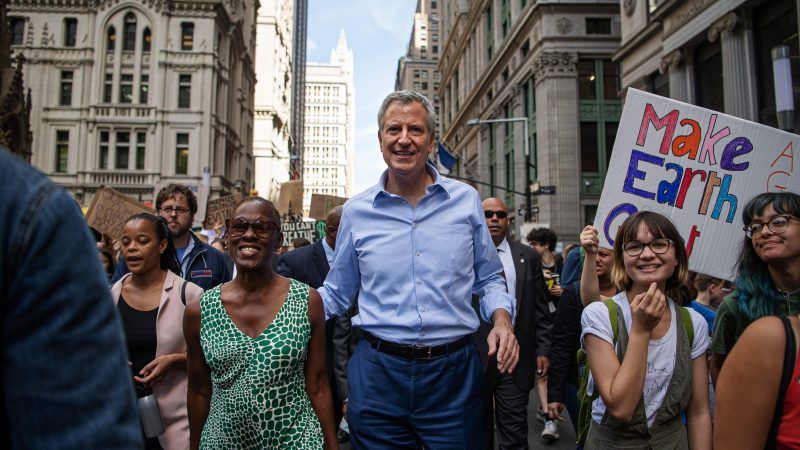New York City Declares Using the Term 'Illegal Alien' Can Result in a $250,000 Fine
The Commission on Human Rights is likely running afoul of the First Amendment.

Last week, New York City's Commission on Human Rights declared that using the term "illegal alien" pejoratively to describe an undocumented person violates laws designed to protect employees and tenants from discrimination, and could result in fines of up to $250,000. But the city's interpretation of the law is so broad that it may very well be unconstitutional under the First Amendment.
Perceived immigration status has long been a protected category under the New York City Human Rights Law, and the commission has now issued guidance that "use of the term 'illegal alien,' among others, when used with intent to demean, humiliate, or harass a person, is illegal under the law."
It's important to note that this guidance does not affect all kinds of speech: The law covers workplace harassment, tenants' rights, and public accommodation. Merely calling someone an illegal alien on the street, or threatening to call Immigration and Customs Enforcement on them, would not be illegal.
The courts have, of course, held that anti-discrimination ordinances can survive scrutiny, even if they appear to limit the free speech rights of employers and landlords. But NYC is going further here. The 30-page guidance notes, for instance, that "the severity or pervasiveness of the harassment is only relevant to damages. Even an employer's single comment made in circumstances where that comment would signal discriminatory views about one's immigration status or national origin may be enough to constitute harassment."
That's a problem, and one that might push the guidance into unconstitutional territory. Government decrees to prohibit free speech in the name of anti-harassment or anti-discrimination must come with certain limiting conditions to survive a First Amendment test.
"The Supreme Court requires that conduct be not just unwelcome, but also severe or pervasive enough to make the work environment both subjectively and objectively hostile, before it is legally considered harassment under federal law," wrote Hans Bader, an attorney and former official in the Department of Education's Office for Civil Rights. "Even the 'severe or pervasive' standard found in federal law is not sufficiently protective of speech, so it is alarming that New York City has eliminated that modest limit on liability."
Bader's entire post on the subject is worth reading in full. The government cannot simply prohibit people from making politically incorrect statements about undocumented people—it must limit the scope of anti-discrimination mandates in order to satisfy the broad free speech guarantees enjoyed by all people.


Show Comments (154)